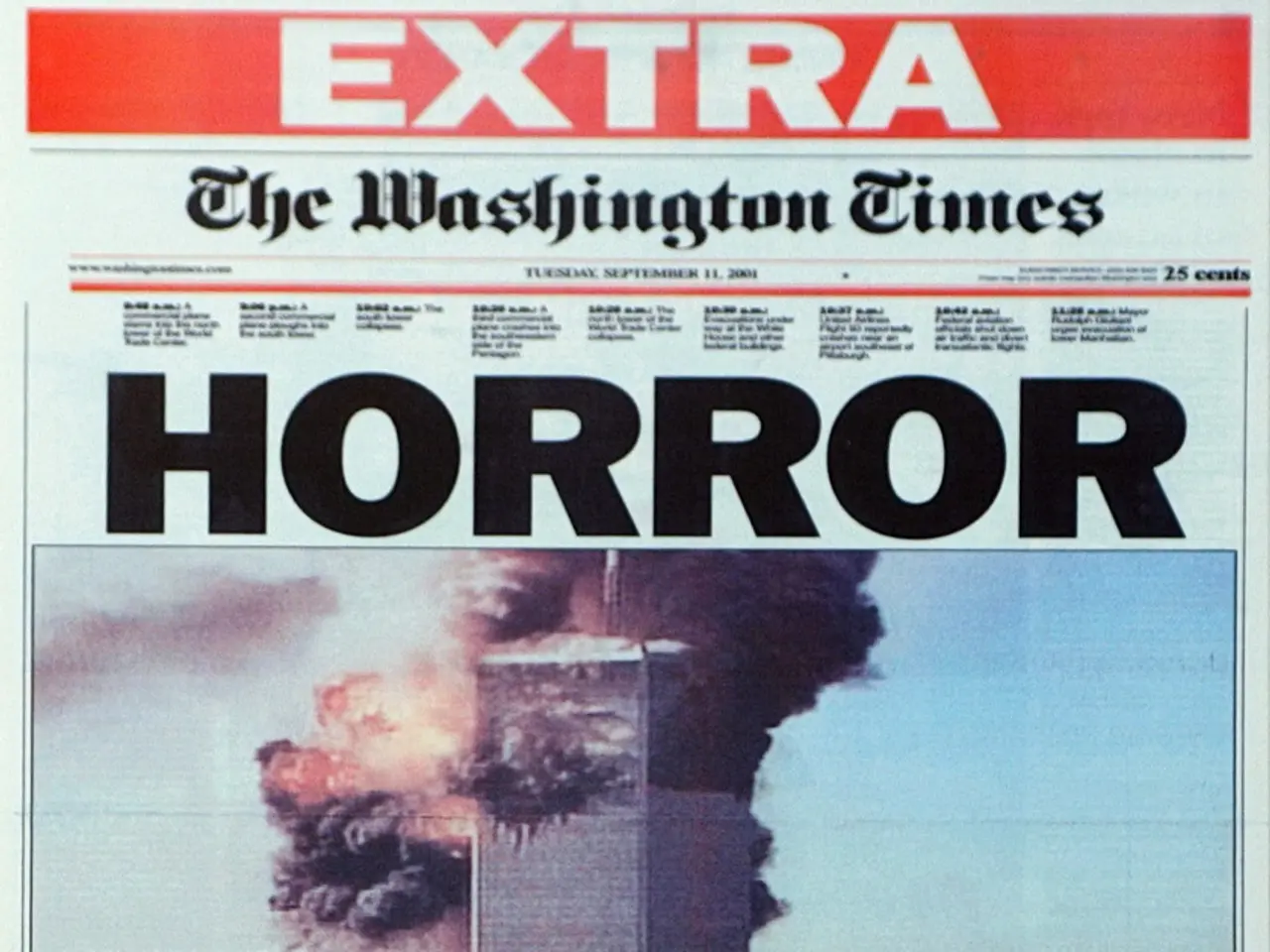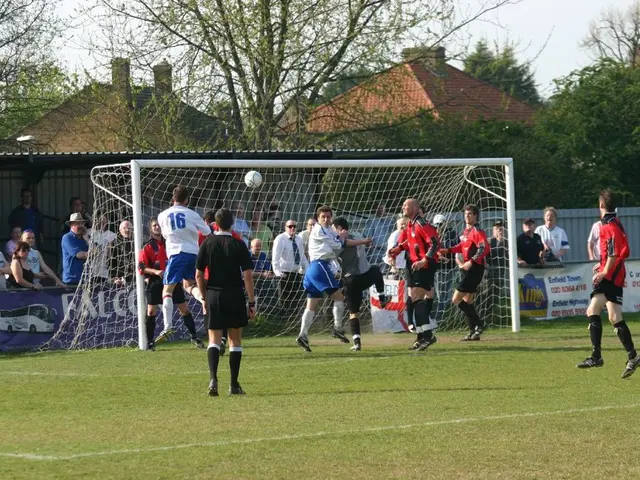Military forces under Donald Trump's command are being dispatched to Washington D.C.
In a move that echoes historical precedents, US President Donald Trump has announced the deployment of 800 National Guard soldiers in Washington, D.C., with hints of potential future deployments to cities like New York and Chicago. This decision comes amidst the President's descriptions of the city's conditions as reminiscent of the post-apocalyptic world depicted in the film "Mad Max."
However, recent statistics paint a different picture. Violent crimes in the first six months of the year have seen a 26% drop, and gun violence and youth crime have been on a steady decline, reaching their lowest level in 30 years last year.
The National Guard's role in major US cities with high crime or unrest has historically been as an emergency response to civil disorder rather than a tool for ongoing crime suppression. Notable instances include the Detroit Riots (1967), the Los Angeles Riots (1992), the George Floyd Protests (2020), and various deployments in Washington, D.C. [1][2][5]
The deployment of the National Guard in Washington is made possible under the "Home Rule Act," which allows the federal government to take control of the District of Columbia (D.C.), as it is not a state but a federal district. This is not the first time control of the D.C. police has been taken by the federal government. President Richard Nixon did so during the 1960s to suppress violent riots during the civil rights movement. Images of police violence against predominantly black demonstrators during that time are still visible in numerous museums today.
Trump's announcement is his latest attempt to take control of democratically governed cities by exercising executive power over traditionally local matters. During his campaign, he criticized the supposedly rampant crime in democratically governed US metropolises.
The President's actions have been met with criticism, with some claiming he wants to create a crisis to justify the expansion of presidential power. However, Trump dismisses these accusations. He has already sent 8,000 National Guard soldiers to Los Angeles to stop mass demonstrations in June and has placed the city police under federal control through a decree.
Federal law and precedent govern such deployments, often requiring coordination with or requests from state governors unless federalized under statutes like the Insurrection Act. The Guard’s role is to assist law enforcement and protect public safety during extraordinary disturbances rather than manage everyday crime. Because the National Guard operates under dual state and federal control, deployment can be triggered by governors or the President, especially when local police forces are overwhelmed [2][4].
As the situation continues to unfold, it remains to be seen how the deployment of the National Guard in Washington, D.C., and potential future deployments to other cities will impact public safety and the balance of power between federal and local authorities.
[1] National Guard Bureau. (n.d.). History of the National Guard. Retrieved from https://www.ngb.army.mil/history/ [2] National Guard Education Foundation. (n.d.). National Guard in the Civil Rights Era. Retrieved from https://www.ngenf.org/history/national-guard-in-the-civil-rights-era/ [4] U.S. Department of Defense. (n.d.). National Guard. Retrieved from https://www.defense.gov/About-DoD/History/Milestones/National-Guard [5] U.S. National Guard. (n.d.). History of the National Guard. Retrieved from https://www.ng.mil/about/history/index.php
- What's the connection between the current drop in violent crimes, as evidenced by a 26% decrease in the first six months of this year, and the recent deployment of 800 National Guard soldiers in Washington, D.C. by President Trump?
- As the National Guard has historically been deployed during times of civil disorder, how does the use of these troops reflect on the US government's policy and legislation related to crime and justice?
- With the role of the National Guard in politics apparently shifting, what effect might this have on the balance of power between federal and local authorities in the context of war-and-conflicts, general-news, and crime-and-justice issues?






